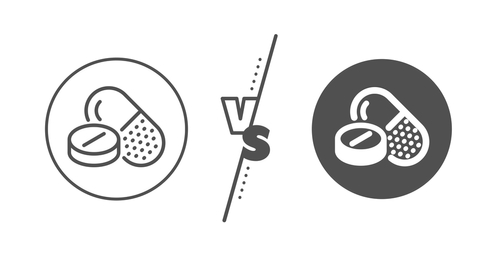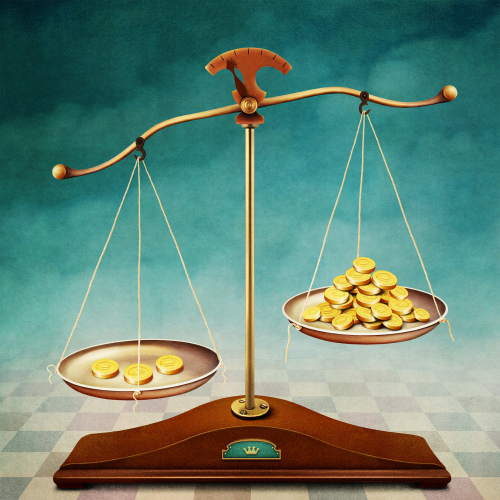Within the pharmaceuticals industry, a student must choose what type of degree is necessary for the career that they have chosen. This choice is best done on the front end of your educational journey; however, both are obtainable, if so desired. Although both are relevant to the pharmaceutical field, your online doctorate degree in pharmacy provides you two choices which are typically a choice between a Pharm.D. degree or the Ph.D. degree. Students enrolled in either of these programs are provided very different understandings of the pharmacy profession.
Quick Points:
- What degree do pharmacists have? They have a Doctor of Pharmacy degree.
- What does a Doctor of Pharmacy do?… They become a pharmacist, dispensing medications.
- What does one do with a Ph.D. in Pharmacy?… Mostly research or is an educator.
- What does a Doctor of Pharmacology do? They are experts in the science behind medications.
Recommended Schools
By the way, what is the correct way to reference a pharmacology degree?
If you are considering the field of pharmacology, you will want to do as much research as possible. Using Google may be a great beginning point for you; however, many search the degree name by entering “Pharm D, Pharm D meaning,” or even “Pharm D degree;” (all with a space in between.) You may also notice “Pharma.D.” in the list of search options; the Doctor of Pharmacy abbreviation, by the way, is Pharm.D. the Doctor of Pharmacy abbreviation, by the way, is Pharm.D.
Just in case you are curious, “Pharm.D.” or “PharmD” is considered correct; (with no space in between); however, using the “Pharm.D. option seems to yield the most search results on Google. But let’s be honest, in whatever format you google about a “Doctor of Pharmacology degree” or “Doctor of Pharmacy Degree,” most likely, information about a Pharm.D. degree will pop up for your viewing pleasure. Also, the term may also differ between the school’s program name.
Whenever you’re searching for answers to the question, “What is PharmD?” you will find that it’s a popular question, too, with hundreds of thousands of search results. We suggest reading only the reliable websites only since information about pharmacy degree programs in the United States can change. These changes typically come from the changes in the pharmaceutical industry in particular and the healthcare industry in general. Examples include the introduction of revolutionary drugs and protocols, changes in processes and procedures designed to improve patient care safety and efficiency, and use of radical technology in drug delivery.
Recommended Schools
What degree does a Pharmacist need?
To become a pharmacist, you must have a Doctor of Pharmacy degree, also known as a Pharm.D. degree. Why is this an issue for some? If you do your research you will find that the field of pharmacology, especially when it comes to “title” and educational recognition, is all very confusing, even to pharmacists themselves sometimes.
As with most positions that require formal education, such as that needed to become a pharmacist, the credentials after your name matter. Often, they signify what your occupation is, as well as the level of education in which you have achieved. Here is where the confusion lies: What’s the difference between a PharmD vs pharmacist? As of January 1, 2003, all pharmacy students were required to earn a Pharm.D. degree and that still holds true today. Prior to 2003, pharmacists upon graduation owned the title of “Registered Pharmacist or RPh” after their name. They had put in the necessary hard work and many of them by this time had years of pharmaceutical experience. After the required change, many pharmacists were either required to get the Pharm.D. degree as mandated or they simply lost their positions due to the job description demanding the Pharm.D. credential; therefore, creating quite the controversy.
Basically, the PharmD vs pharmacist boils down to what comes first. Aspiring pharmacists must earn a Doctor of Pharmacy (Pharm.D.) degree, which is considered a post-graduate professional degree. While admission requirements vary by program, many programs require applicants to undergo at least two years of undergraduate study but many programs also require a bachelor’s degree. Take note that most programs also require applicants to pass the Pharmacy College Admissions Test (PCAT).
Pharmacy programs differ in terms of duration, too. The typical program requires four years of study but there are three-year accelerated programs and 6-year programs for high school graduates. All pharmacy degree programs, nonetheless, include rigorous academic coursework including courses on pharmacology, chemistry and medical ethics, as well as clinical internships in hospitals, clinics, and retail pharmacies.
But the journey toward becoming a pharmacist doesn’t end with finishing a Pharm.D. program and undergoing internship! After graduation, aspiring pharmacists must pass the North American Pharmacist Licensure Examination (NAPLEX) and the Multistate Pharmacy Jurisprudence Examination (MPJE). The former tests the applicant’s pharmacy knowledge and skills while the latter is a state-specific exam.
Once you have achieved all of these things – earn your pharmacy degree, undergo an internship training, and pass the two licensure examinations – then you can call yourself a pharmacist!
Now that we’ve answered the question, “What is a PharmD degree?” let’s answer the next logical question, “What does doctor of pharmacy do?”
Keep in mind that more than anything else, doctors of pharmacy – or pharmacists, for short – are experts in medications. As such, their main responsibility is formulating, implementing and evaluating the best medication plans for their patients. Their main goals are to ensure drug safety, improve patient outcome, and assure cost-effective medication plans.
Pharmacists are also required to perform the following roles and responsibilities on the job:
- Verify drug prescriptions from physicians and fill these prescriptions according to proper dosage
- Determine possible drug interactions and side effects that prescribed and over-the-counter drugs will likely have on other drugs being taken by a patient and with his health condition or issues
- Provide instructions to patients and their families/caregivers about when and how to take the doctor’s prescribed medication, as well as inform them of possible side effects and what to do
- Advise patients and their families/caregivers about general health topics
- Perform administrative tasks, such as completing insurance forms, supervising interns and keeping records
- Give flu shots and vaccinations, if allowed under their license
Recommended Schools
RPh vs. Pharm.D.?
And then there’s the PharmD RPh discussion including the question, “What’s an RPh degree?” As many pharmacists did earn the correct degree, they sign their name using the “Pharm.D.” credentials followed by the title “RPh.” For example, their signature may read as follows: Jack Smith, PharmD, RPh. Pharmacists graduating today who are just beginning their careers most often just use the “PharmD” title. So, with those asking the question, “RPh vs PharmD?” – You decide… as one seems to be a title and one the actual degree earned; however, it may also depend on who you ask! Be sure to do your own research, if it is a concern for you.
But is a PharmD a doctor? Yes, of course, and pharmacists can use the title of doctor when they are at work – but with a condition! They must immediately identify themselves as a pharmacist during their interactions with patients and their families/caregivers lest the latter become confused. They also cannot use the title of doctor in the performance of duties typically associated with medical doctors, such as the diagnosis of an illness or the delivery of a baby.
In other settings, they can use the title of doctor in the same way that a person with a PhD in any field of study uses the title.
Recommended Schools
Pharm.D. vs. Ph.D.
And then there’s also the PharmD PhD distinction! We must go back to the question, “What is a PharmD degree?” to make the distinction between these two doctor titles.

What is a Pharm.D. degree? The Pharm.D. program is primarily used by the student who intends to be a practicing pharmacist whether it be in a community pharmacy or in a large healthcare establishment. This degree is not as research-intensive as the Ph.D. program, however, it does focus on the knowledge of biological science and patient care.
If you are interested in a career in research within the pharmaceutical realm or a career in teaching at a higher educational level, then a Ph.D. program may be the degree of choice for you. Along with your coursework, you will be responsible for your own research and dissertation, which can take up to five years to complete.
Is there a difference in the coursework?

A pharmacy student enrolled in a Pharm.D. program will study a variety of coursework such as pathology, biostatistics, immunology, drug interactions, physiology, anatomy, medical chemistry, physiology, biopharmaceutics, diagnosis of diseases, healthcare systems, therapeutics, pharmacy law and management, as well as clinical training.
As a student obtaining an online doctorate degree in pharmacy, the Ph.D. or pharmacy doctorate requirements consist of an emphasis on metabolism and biostatistics, infectious disease, human pharmacology, and therapeutics. These courses will prepare you to use advanced research skills relating to new drug revelations, medical advancements, and the distribution process to the patient.
What’s the end product of each type of degree?

So, perhaps you’re wondering what sort of career you can procure with each type of degree. With an online doctorate degree in pharmacy, your Pharm.D. degree will afford you a career as the obvious, which is a pharmacist; however, there are a few divisions of expertise you may want to consider. You may choose to work in a local pharmacist or box store pharmacy in your community or perhaps, in a hospital/healthcare facility setting is more to your liking. A pharmacist consultant or managed care pharmacist might interest you, as well.
A graduate with a Ph.D., who would be qualified to educate and do research development in the pharmacy field, may also consider positions as a regulatory affairs officer, a consultant, a science editor or medical writer, or a position in clinical trials management.
Ah, the big question, is there a difference in pay between the two choices?
In making the decision between PharmD vs PhD, the matter of annual salary that comes with each degree is a common issue. This isn’t surprising as both degrees require substantial monetary outlays and, thus, recouping the financial investment through an attractive compensation package makes sense.

Each degree, the Pharm.D. and the Ph.D., will yield you different earning potential. The salary of the pharmacist, on average, is more than that of a pharmaceutical researcher. The U. S. Bureau of Labor Statistics reports that in 2020, the median salary of a pharmacist was $128,710 per year, while the medical researcher’s median salary was $91,510 annually.
A holder of a PhD in pharmacy earns a higher salary – the average salary range is between $124,045 – $156,773 every year. Indeed, the hours of hard work earning a PhD in pharmacy are well worth the rewards!
Although each type of degree seems similar but are very different, they each get you closer to your goal. With each degree type providing you different career experiences, they both provide you the rewarding opportunity of serving your community in a positive way.
How to get a Doctorate in Pharmacy
There are only a handful of schools offering Pharm.D. programs online….we’ve got your list right here!